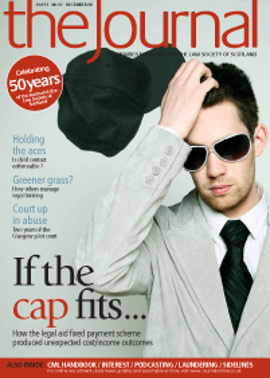Flotation and the trustee

You might have trustee clients who received shares when Standard Life demutualised earlier this year. A number of trust and tax issues arise as a result of this, and the key question for many trustees will be determining the nature of the receipt as income or capital.
Eligible members (with-profits policyholders) of The Standard Life Assurance Company (“the company”) received demutualisation entitlements, in the form of shares or cash, on the demutualisation of the company and flotation of Standard Life plc on the London Stock Exchange on 10 July 2006.
A number of trusts held with-profits policies, and shares were issued to the trustees who were eligible members (this demutualisation entitlement was determined by reference to the with-profits policies for which they were the eligible member). Some eligible members elected to sell the shares and receive the cash proceeds of sale instead.
The question arises as to the status of the shares trustees received on demutualisation in terms of being capital or income, and how the trustees should deal with the shares.
This will be a matter for the trustees of each trust to consider and take independent legal advice and/or advice from a qualified financial adviser. The wording of the individual trust deed will affect the outcome. Standard Life plc cannot give legal, investment or tax advice. We can however set out some of the considerations which may apply if the shares are trust property.
Capital or income?
In deciding whether the shares are capital or income, the trustees will need to consider the nature of the receipt. The shares allocated on demutualisation can be considered a one-off “payment” which compensates eligible members for the loss of their membership rights in the company. This has the character of a capital receipt.
Which beneficiary (if any) is entitled to the shares?
Whether the shares are treated as capital or income is an important question, because many trusts have different classes of beneficiaries. For example, trustees of an interest in possession trust pay income arising to the income beneficiaries. In some trusts, there are also identifiable capital beneficiaries. In contrast, beneficiaries of discretionary trusts do not have a right to the trust assets: distributions of capital are made at the discretion of the trustees. Some trusts, such as flexible power of appointment trusts, contain a mixture of income beneficiaries and discretionary beneficiaries. Many different trust wordings exist.
Where the trustees have elected to sell the shares, either at the outset or later, they will want to consider the capital gains tax (CGT) position. For tax year 2006-07, a trust will normally have an annual CGT allowance of £4,400. Where, however, a settlor has created more than one trust, there are rules which share that allowance among the trusts in a particular way and tax advice will need to be taken. The trustees will therefore want to make enquiries of the settlor to be certain of what CGT allowance is available to them.
Finance Act 2006
On 22 March 2006 significant changes were announced to the inheritance tax treatment of gifts to trusts. We have been asked if the initial allotment of shares to trustees has implications in terms of these Budget changes. Our understanding of the legislation is that no difficulty should arise in this instance. Many different trust wordings exist, but where shares are trust property, those shares belong to the trustees from the outset, and their ownership arises as a result of trust property which already sits within the trust and is the property of the trustees, not the settlor. It would be a different matter if someone who received shares as an individual then decided to transfer the shares to a trust, but this is not the scenario here.
Julie Hutchison, National Development Specialist – Estate Planning, Standard Life
Tax and legislation are liable to change. This information is based on Standard Life’s current understanding of law and practice in the UK and Ireland. The comments above are not intended to relate to the trustees of occupational pension schemes.
Tax rates and reliefs may be altered. The value of tax reliefs to the investor depends on their financial circumstances. No guarantees are given regarding the effectiveness of any arrangements entered into on the basis of these comments. Please note that the value of an investment may fall as well as rise and an investor may not get back the amount originally invested.
In this issue
- Costume Wars: copyright storm over the troopers
- The end of the beginning
- Public appointment: public interest
- Fixed payments: a real impact?
- Training: the bigger picture
- Contact breakers
- Abuse in the system
- Stirring up interest
- Twin-tracking law reform
- Hung out to dry
- Fraud: the client's perspective
- The proof is in the podding
- How did you do?
- Old friends revisited
- A reprieve for landlords?
- Smell of success
- There's no case like Rome
- Hurt in the pocket
- Flotation and the trustee
- Scottish Solicitors' Discipline Tribunal
- Website reviews
- Book reviews
- Risk and the in-house lawyer
- The CML Handbook revised
- Ten things you should know about SDLT
- All change at the Registers






